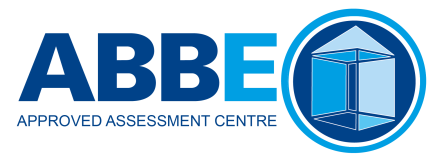
Research reveals that more than 70% of social housing towers have fire safety issues
1st August 2018
Last month, Inside Housing revealed the results from the largest ever survey of tower block risk assessments following analysis of 1,584 blocks in England, which equates to 40% of the UK’s social housing.
These risk assessments revealed a range of fire safety failings including broken fire doors, holes in walls and missing fire safety information for residents.
Broken fire doors were found in 1,130 tower blocks and holes in the walls or ceilings were found in 385 tower blocks. Both of these issues breach fire safety regulations and, in the event of a fire, would cause fire and smoke to spread faster.
The research also revealed that many fire risk assessments weren’t being carried out annually, and 54% of the tower blocks had not been assessed since the Grenfell Tower fire.
Other issues found included: Missing or broken emergency lighting which affected 402 blocks, and missing fire safety information for residents which affected 712 blocks.
When Dame Judith Hackitt carried out a review into building regulations and fire safety, as a direct result of the Grenfell Tower disaster, she said that fire risk assessments should be carried out at least annually, as well as when any significant alterations are made to the building.
In response to this, Inside Housing’s Never Again Campaign is calling on landlords to carry out and publish assessments of their tower blocks annually.
Head of practice at the Chartered Institute of Housing, Debbie Larner said: “It is clear from this survey that the scale of the issues we continue to face when it comes to fire safety are significant.
"It is extremely worrying that a year on from the Grenfell Tower tragedy such a high proportion of the tower blocks surveyed have ongoing issues with fire safety.”
Rob Holloway, MIFSM at Vulcan Fire Training said: “Passive fire protection, such as poor fitting fire doors and unfilled fire stopping are a problem throughout all industry sectors. This is generally a business continuity risk in an office environment with alternative means of escape and a fire alarm system.
In a sleeping risk, lack of passive protection is a high risk to life, especially when there is a stay put policy in place.
Social Housing has to comply with The Housing Act 2004, The Local Government Association Fire safety in purpose built blocks of flats, or The Home Office Sleeping accommodation fire guide. Fire guides mostly state that monthly fire door checks should be taken out and recorded using simple checklists. The biggest problem Vulcan has seen is these checks are either not being done or the people doing the checks do not know what problems to look for. In the Social Housing sector monthly checks may often not be possible.
The Fire Risk Assessment (PAS 79) Action Plan should pick up these physical/management insufficiencies and the Responsible Person must action the identified control measures to comply with the Regulatory Reform (Fire Safety) Order 2005.
It is evident that many Social Housing buildings do not comply with the current fire legislation.”
Vulcan Fire Training offer a range of fire training courses - including our Fire Risk Assessor and Fire Manager Certificate - which provide in-depth and practical training into fire risk assessment and other aspects of fire safety.
Find out more about the range of courses we offer here.


